Introduction
Life throws curveballs, and sometimes those curveballs come in the form of minor (or not-so-minor) ailments. While we can't predict every bump and bruise, we can be prepared! Building a basic home pharmacy with essential medications empowers you to handle everyday health hiccups without scrambling to the pharmacy at midnight.
This list focuses on over-the-counter (OTC) medications and is not meant to substitute for professional medical advice. Always consult your doctor before starting any new medication, especially if you have pre-existing conditions or are taking other medications.
1. Pain Relievers:
- Acetaminophen (Tylenol): Relieves pain and fever. Suitable for most adults and children (check dosage guidelines carefully).
- Ibuprofen (Advil, Motrin): Reduces pain, inflammation, and fever. Consider if acetaminophen isn't effective, but be cautious if you have stomach issues or use blood thinners.
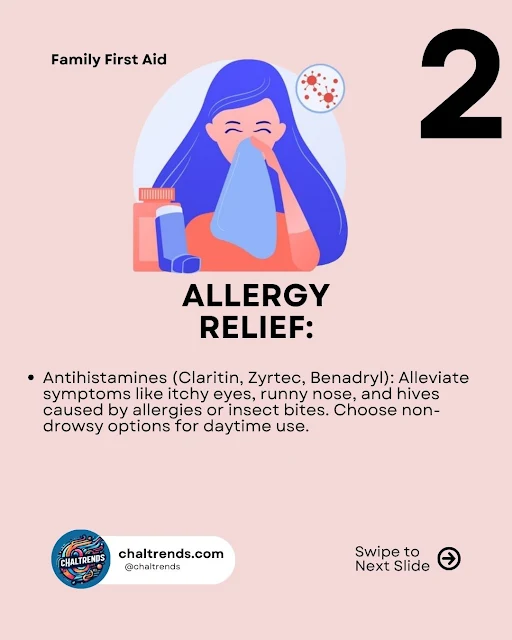
2. Allergy Relief:
- Antihistamines (Claritin, Zyrtec, Benadryl): Alleviate symptoms like itchy eyes, runny nose, and hives caused by allergies or insect bites. Choose non-drowsy options for daytime use.
3. Digestive Relief:
- Antacids (Tums, Rolaids): Neutralize stomach acid, calming heartburn and indigestion.
- Antidiarrheal medication (Pepto-Bismol, Imodium): Helps shorten the duration and severity of diarrhea. Use cautiously and follow dosage instructions closely.
4. Topical Treatments:
- Antiseptic cream (Neosporin, Bactine): Cleans and protects minor cuts, scrapes, and burns.
- Hydrocortisone cream: Soothes itchy skin caused by insect bites, rashes, or allergies.
5. Cold & Flu Relief:
- Decongestant nasal spray (Afrin, Sudafed): Relieves nasal congestion and pressure. Use sparingly (don't exceed 3 days) and avoid if you have high blood pressure.
- Cough suppressant (Delsym, Robitussin): Calms coughs, especially at night. Choose non-drowsy options during the day.
6. First-Aid Essentials:
- Bandages: Various sizes for covering wounds.
- Gauze pads: Absorbant wound dressings.
- Antiseptic wipes: Clean and disinfect wounds.
- Thermometer: Monitor body temperature.
7. Consider These Additions:
- Electrolyte powder: Replenishes fluids and electrolytes lost during illness or diarrhea.
- Laxative: For occasional constipation (use cautiously and not as a long-term solution).
- Pain relief creams or gels: For muscle aches or topical pain.
Remember:
- Store medications safely, out of reach of children and pets.
- Regularly check expiration dates and replace expired medications.
- Label medications clearly if multiple people use them.
- This list is a starting point; consult your doctor for personalized recommendations based on your family's needs and health conditions.
By keeping these essential medications on hand, you can be prepared to tackle minor health bumps without unnecessary stress or late-night pharmacy runs. Remember, preparedness is key to navigating life's little (and sometimes not-so-little) mishaps calmly and effectively.

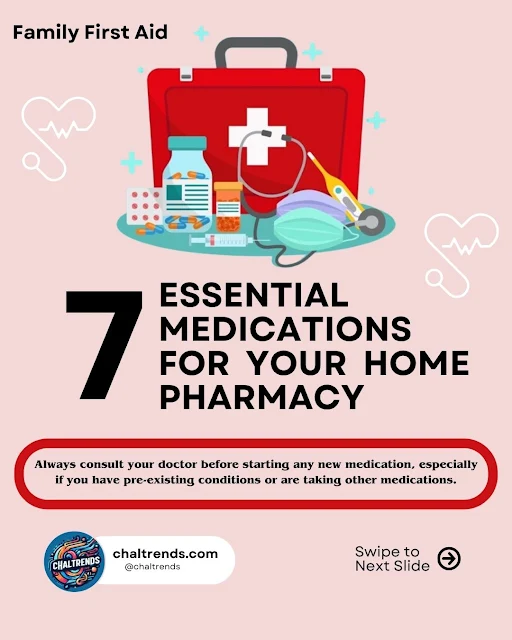
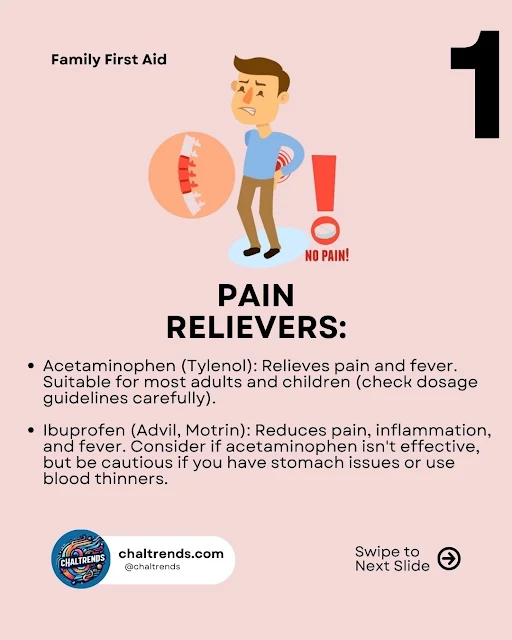
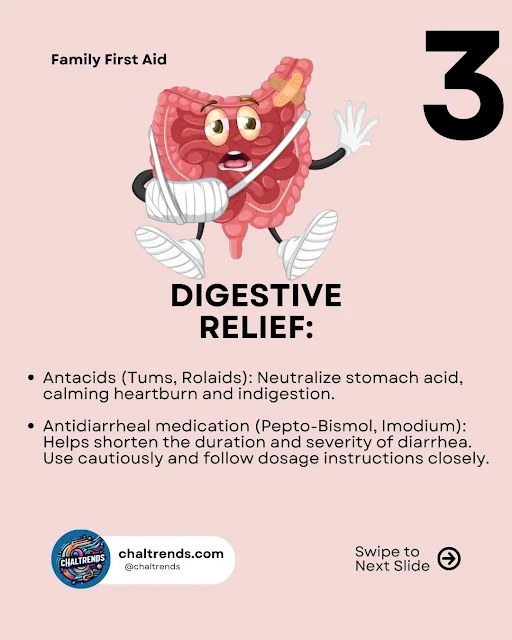
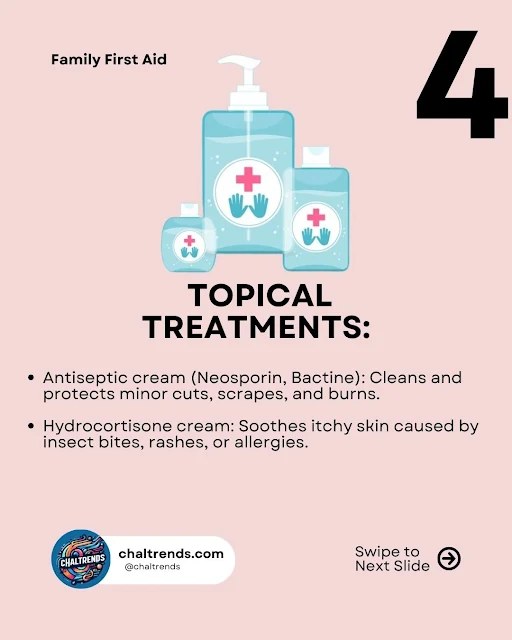
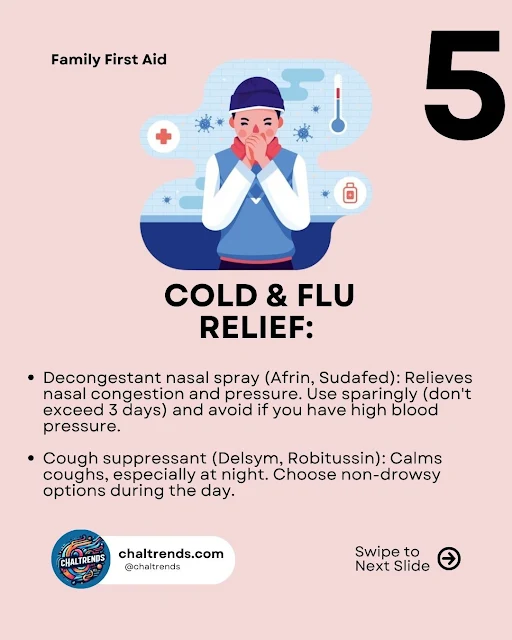
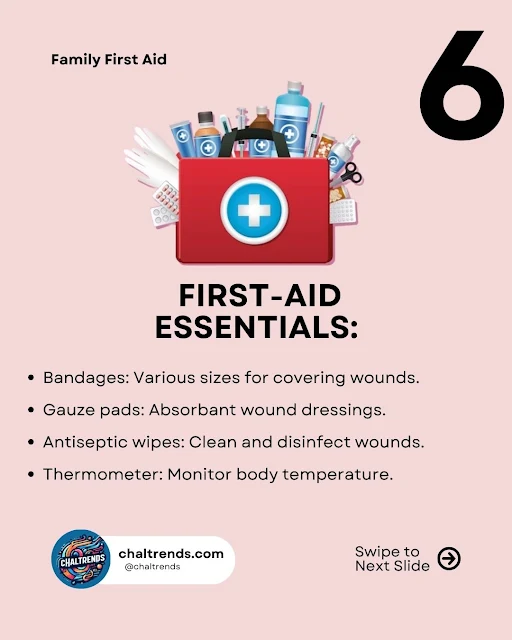
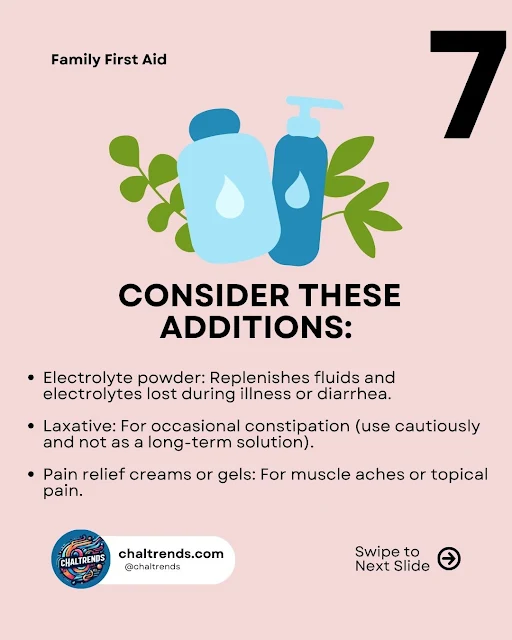
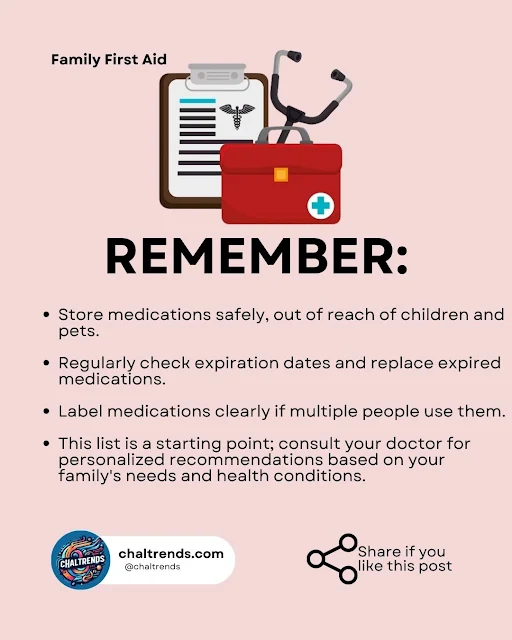
.jpeg)





0 Comments